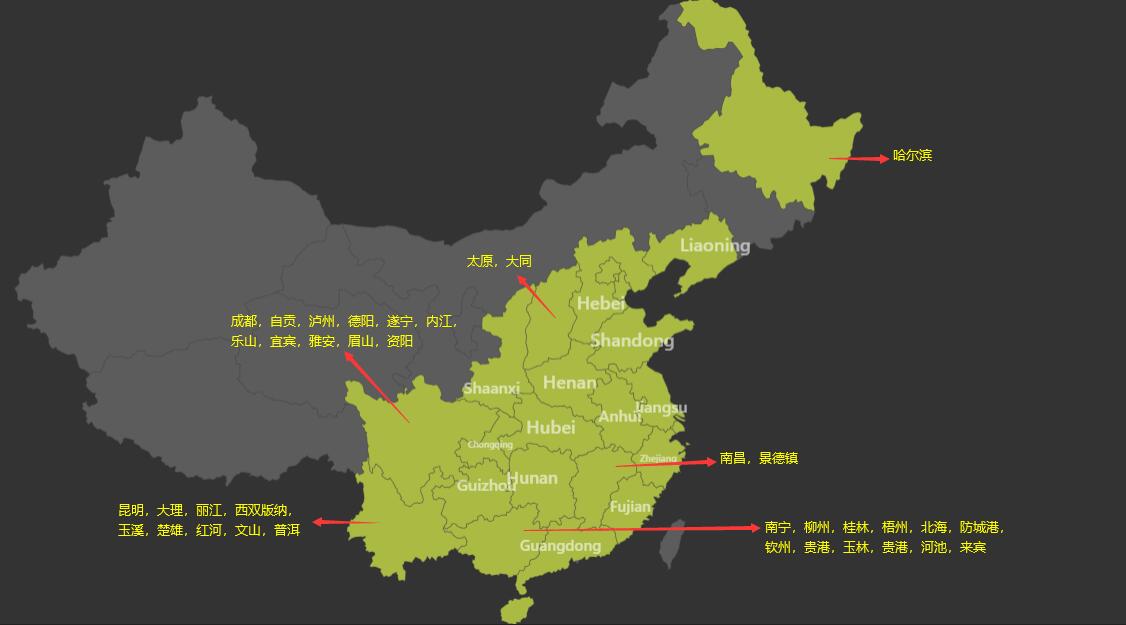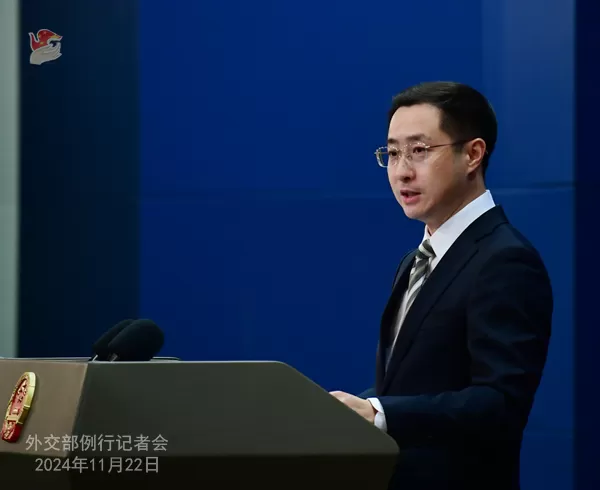The National Immigration Administration (NIA) announced today that it will fully relax and optimize the visa-free transit policy, which is effective immediately. The stay duration for foreign nationals eligible for visa-free transit has been extended from the previous 72 hours and 144 hours to 240 hours (10 days). Additionally, 21 ports of entry and exit have been added for visa-free transit individuals, further expanding the allowed areas for visa-free transit travelers. Individuals from 54 eligible countries, including Russia, Brazil, the United Kingdom, the United States of America, and Canada, traveling from China to a third country (region), can enter visa-free through any of the 60 open ports in 24 provinces (autonomous regions and municipalities), and stay within the allowed areas for visa-free transit travelers for no more than 240 hours.
The 21 newly added ports for the visa-free transit policy are Taiyuan Wusu International Airport in Shanxi Province, Su’nan Shuofang International Airport and Yangzhou Taizhou International Airport in Jiangsu Province, Wenzhou Longwan International Airport and Yiwu Airport in Zhejiang Province, Hefei Xinqiao International Airport and Huangshan Tunxi International Airport in Anhui Province, Fuzhou Changle International Airport, Quanzhou Jinjiang International Airport, and Wuyishan Airport in Fujian Province, Nanchang Changbei International Airport in Jiangxi Province, Jinan Yaoqiang International Airport, Yantai Penglai International Airport, and Weihai Dashuipo International Airport in Shandong Province, Zhangjiajie Hehua International Airport in Hunan Province, Nanning Wuxu International Airport and Beihai Fucheng Airport in Guangxi Zhuang Autonomous Region, Haikou Meilan International Airport and Sanya Phoenix International Airport in Hainan Province, Chengdu Tianfu International Airport in Sichuan Province, and Guiyang Longdongbao International Airport in Guizhou Province. The number of opened ports has increased from the original 39 to 60.
The fully relaxed and optimized 240-hour visa-free transit policy has further expanded the allowed areas for visa-free transit travelers. The number of provinces (autonomous regions and municipalities) that can be visited under this policy has increased from the original 19 (Beijing Municipality, Tianjin Municipality, Hebei Province, Liaoning Province, Heilongjiang Province, Shanghai Municipality, Jiangsu Province, Zhejiang Province, Fujian Province, Shandong Province, Henan Province, Hubei Province, Hunan Province, Guangdong Province, Guangxi Zhuang Autonomous Region, Chongqing Municipality, Sichuan Province, Yunnan Province, and Shaanxi Province) to 24 (with Shanxi Province, Anhui Province, Jiangxi Province, Hainan Province, and Guizhou Province added to the list). In the newly added five provinces, the allowed areas for visa-free transit travelers in Anhui Province, Hainan Province, and Guizhou Province include the entire province. In Shanxi Province, the areas are limited to Taiyuan and Datong, and in Jiangxi Province, the areas cover Nanchang and Jingdezhen. The areas in Fujian Province, Hubei Province, and Shaanxi Province are expanded to the entire respective provinces, and in Guangxi Zhuang Autonomous Region, the area expands to the administrative regions of Nanning, Liuzhou, Guilin, Wuzhou, Beihai, Fangchenggang, Qinzhou, Guigang, Yulin, Hezhou, Hechi, and Laibin. Foreign nationals entering China through the visa-free transit policy can make cross-province travels within the allowed areas for visa-free transit travelers in these 24 provinces (autonomous regions and municipalities).

According to an NIA official, the recent relaxation and optimization of the visa-free transit policy is a significant step taken by NIA in line with its commitment to thoroughly learning and implementing the instructions from the Central Economic Work Conference, aiming to proactively serve and promote a high-standard opening up while facilitating the exchanges between Chinese and foreign nationals. This initiative is beneficial for accelerating cross-border flows of people, promoting international communication and cooperation, and injecting new momentum into the high-quality development of the economy and society. Going forward, the NIA will continue to deepen the institutional openness of immigration management, continually optimize and improve the policies facilitating entry and exit for immigrants, and enhance the convenience for foreign nationals to study, work, and live in China. NIA invites more foreign friends to come to China and experience the beauty of the country in this new era firsthand.



















